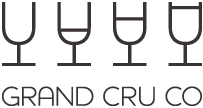Britains first Sake Brewery Approved
The Dojima Sake Brewery’s first UK facility, located at Fordham Abbey Estate, is set to start production in October next year, part of a five-year investment of £9m. Construction will take nine months.
Dojima owner Yoshihide Hashimoto said he was ‘very excited’ to see the work commence, after awarding the construction contract for the brewery to local company Patrick Doyle Contractors.
The brewery will make 10,000 bottles of sake during its first year of operation, and up to 10 jobs will be created initially, during construction, in the brewery and adjacent visitor centre. The project’s ‘Jichinsai’ or ground-breaking ceremony, attended by Japan’s Ambassador to the UK, Koji Tsuruoka, and local MP Lucy Frazer, took place on 28 October.
Tsuruoka said ‘Although this is a ceremony that happens in Japan when a new building is being constructed, it has never happened in the UK and I was very happy to be a part of it.’
Frazer said the decision by Dojima to locate the sake brewery at Fordham was ‘an endorsement of our region’.
The project also received support from the UK Trade and Investment (UKTI), including arranging meetings with experts and helping with the choice of location. UK food and drinks specialists Campden BRI are also involved with the project, using its water mineralisation expertise to ensure that the hard water found in the UK is suitable for making sake.
Miraval 2016 labels printed with Jolie-Pitt name
Bottle labels for the yet-to-be released Château Miraval 2016 vintage have been printed and still carry the Pitt and Jolie names, appearing to dampen speculation that the Provence estate will be imminently put up for sale.
Brad Pitt and Angelina Jolie’s winemaking partners at Château Miraval have printed labels for the estate’s Provence rose 2016 wine. The labels state that the wines has been bottled by Jolie-Pitt and Perrin. The Perrin family of Château Beaucastel helps Pitt and Jolie make the wine.
A report by Us weekly cited multiple unnamed sources in recent days as saying Pitt and Jolie would sell Miraval following news of their divorce. The publication also said that the 2016 labels were likely to be printed without the Pitt and Jolie names. ‘The rumours have been intensifying over the past few weeks’, a source close to the estate told Decanter.com. ‘But everything remains in place exactly as it has been’.
The Jolie-Pitts purchased Miraval for a reported US$60 million in 2008. They spent several years upgrading it, adding helicopter pads, a dirt bike course and fully renovating the wine cellars.
Their first Miraval rosé in partnership with the Perrins was released in 2013 and it sold out quickly. Several critics have praised the quality of the wine. One industry expert said that the 2016 label designs may have been submitted before news of the divorce proceedings broke.
Label approval for the United States is a long process, and for a quick turnaround product like rosé, the labels need to be submitted well in advance, the expert said. It would not be out of the question for new labels to be printed.
Chile’s terroir needs more recognition says Chief Winemaker at Errazuriz
Decanter's content director John Stimpfig talks to Francisco Baettig, Chief Winemaker and Technical Director at Errazuriz about his frustrations with a lack of definition and protection for Chile's top terroirs.
Right now there is no AC or quality system in Chile to protect and promote these very precious, recognised vineyard sites. And that needs to change.
Chile needs more precise appellations to develop markets, encourage its fine wine sector and protect its top terroirs, says Francisco Baettig, Chief Winemaker and Technical Director at Errazuriz.
‘It is becoming increasingly imperative that we define and develop a more rigorous and precise Appellation Contrôlée system in Chile for consumers and producers. At the moment, there is no official or legal framework for our most promising sub-areas or specific terroir sites like Apalta, Chilhué and others. Instead, the smallest division is the Comuna which is in many cases too large and unspecific.’
The last time Chile updated its appellation wine laws was in 2011 when it took two years of bureaucratic negotiations to agree decree 464. As a result, producers became entitled to use the terms Costa (coast) Entre Cordilleras (central) and Andes (Eastern) on their labels.
Previously, Chile’s wine regions were solely based only on political boundaries which divided the country from north to south. So the move was a step in the right direction, but didn’t go far enough, says Baettig. ‘The divisions are still too broad and no one sees any interest in using the Entre Cordilleras term’.
Baettig would also like to see other legal terms tightened up. ‘At the moment, we lose out through low thresholds of quality and an almost complete lack of specific designations.
For instance, to label a wine as a Reserva in Chile, the only hurdle it has to clear is that it must be more than 12%. And in Chile, there is currently no official designation or definition of a single vineyard.’
‘We need to get some better laws and more rigorous definitions in place – and as quickly as possible.’
Cheers!




